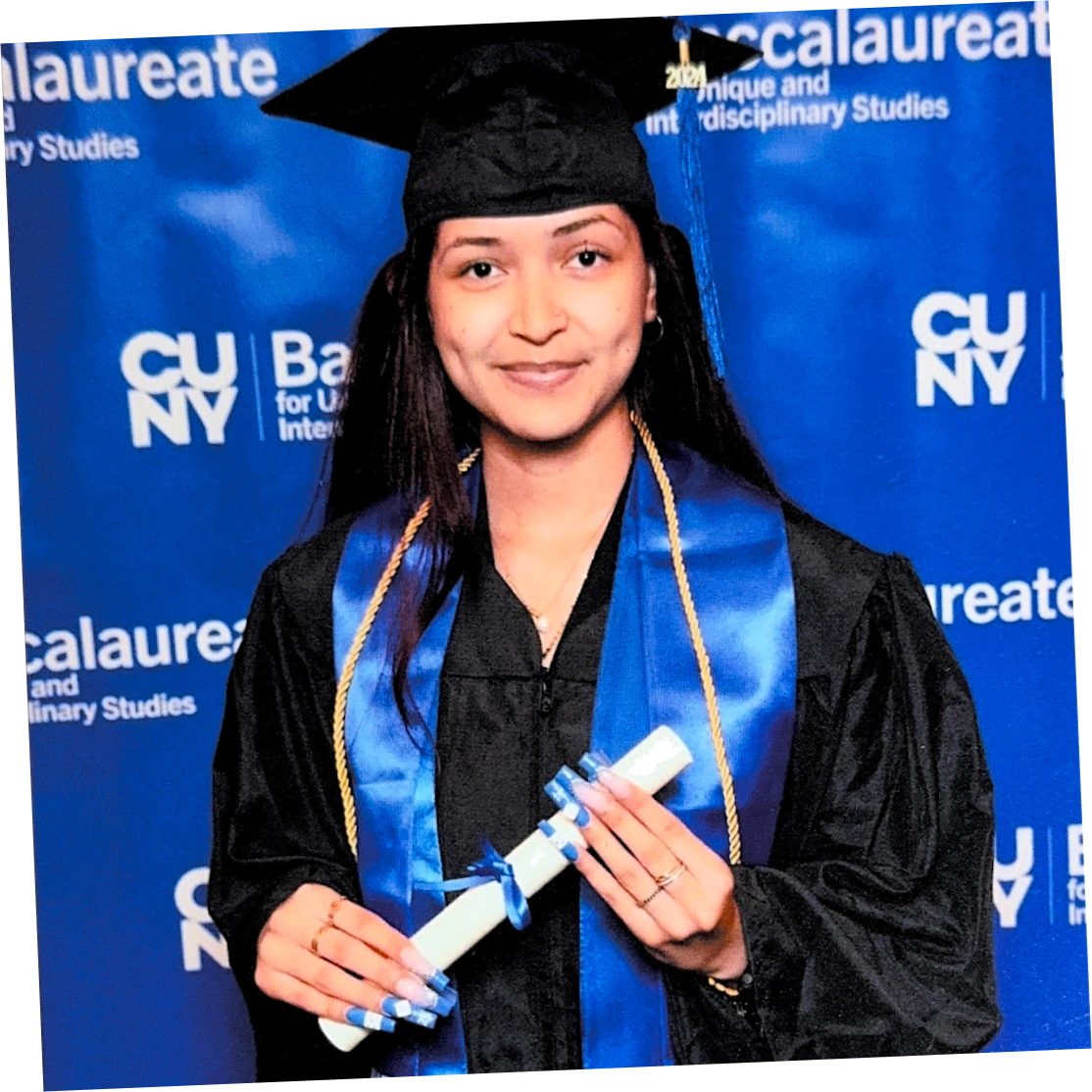Forgotten Foods is an alternative educational, leadership, and organizing hub for young people in neighborhoods and street corners that are overlooked.
Behind the Name
Forgotten Foods is more than just a name; it’s a call to remember and value historically marginalized communities who are at the center of food and spatial injustices. In choosing this name, we also challenge Staten Island’s image in New York City, as the “the forgotten borough” by elevating the borough’s vibrant communities and their deep contributions to New York City’s history, economies, culture, and identity.
Forgotten represents:
Neighborhoods & Communities: Places that have contributed significantly to our shared life and culture yet are often unseen or undervalued.
People: Individuals who have been marginalized or forgotten, highlighting the skills, talents, and capacities they bring to our communities.
Foods symbolizes:
Nourishment: Fresh, culturally-relevant, locally-grown healthy food
Essential Elements to Neighborhoods: The skills and knowledge that nourish our communities and sustain our neighborhoods’ local economies, culture, and spaces.
Histories & Knowledge: The frameworks, lifestyles, stories, and wisdom that form the bedrock of resilient neighborhoods and thriving local economies.
Our Story
A Seed
July 2020
Forest Avenue COMEUnity Fridge was planted in July 2020 by Alexandra Shoneyin to address the lack of healthy food options and disunity in her neighborhood, Mariners Harbor. Understanding the importance of community and friendship in tackling these issues, she mobilized her childhood friends: Oksana Bento, Nia Simone Smith, Maimouna Faye, Folashade Fakoya, Irima Ajang, and Jasmine Chong to start Staten Island’s first community fridge. These friends received their first fridge from the NYC-based collective In Our Hearts and positioned themselves as a mutual aid group in the community. They established the fridge on the premise “take what you need; give what you can.”
Our Roots
August 2020
The focus for Forest Avenue COMEunity Fridge shifted. What started as a project to challenge local food insecurity and food deserts slowly budded into a space that also connected residents to other critical resources. Group members facilitated book swaps and clothing swaps where local residents were encouraged to practice the same values they followed when taking food: mutual aid and reciprocal giving. Over the course of a year, the volunteer-run group organized more than 10 food giveaways and community-centered events in the neighborhood and served more than 300 families in the neighborhood and across Staten Island. Staten Islanders from all over the borough would travel 30-40 minutes just to fill up the fridge or clean it. Although the fridge made a significant impact in the community, the group noticed that people typically had transactional experiences with it, and sought to connect with community members on a more transformational level. They wondered if direct service was truly the path to addressing food insecurity and food access issues in their neighborhood.
Growing Leaves
January 2021
2022 harvested many changes for the group. Members left to pursue their own personal projects and responsibilities. During this time, Alexandra and 2 founding members, Justin Baker and Sarah Kabalkin, shared conversations about creating a formal space to connect their food sovereignty work through community organizing, urban agriculture, and culinary offerings. They desired a space for young Staten Islanders to continue learning life-sustaining skills in urban agriculture, cooking, and community organizing but in a way that was relational, sustainable, and innovative. They wanted to build upon the values that initiated the COMEunity Fridge and scale their work, reaching more youth. They applied for several grants to resource youth programming and pass on these values to the surrounding community–none of these paths worked. In August 2022, Justin and Alexandra held a Community Day in collaboration with Green City Force - Mariners Harbor Eco-Hub, the Intergenerational Change Initiative, and Youth Food Justice Network to gather over 25 youth across New York City and collect data on Mariners Harbor’s food access and security needs. The day culminated in youth sharing their research and brainstorming potential solutions. One youth from that day shared that she believes that change is coming in Mariners Harbor and we will be the ones to start it. She was right. In 2023, we piloted our first internship program with 6 interns in Mariners Harbor as a fiscally-sponsored program under LoveWellSpent.
What started as a mutual aid initiative was turning into something deeper. Shortly after, Alexandra applied for 501c3 status with the encouragement of Sarah Kabalkin and community members to create more sustainable and long-term programming, unique employment opportunities for Staten Islanders around the group’s mutual aid work, and an ecosystem to connect the group’s food sovereignty initiative. Forgotten Foods was established as a 501c3 in May 2023 to serve as a youth organizing hub that cultivates, nurtures, and organizes local leaders to regenerate Staten Island’s food systems, neighborhood spaces, and culture.
The Fruit
September 2022
The group of 7 stretched into a network of more than 30 Staten Island North Shore residents coming together for one purpose: to combat food insecurity and food waste in the neighborhood through rescuing uneaten food from local food pantries and restaurants to fill the fridge and distributing food grown from local farms across Staten Island. Initially, the fridge was met with skepticism by neighbors, and the collaborative realized that residents were not used to receiving unconditional care from their community. Nonetheless, the group gathered support from community gardens and urban farms across the North Shore and other businesses in the area to donate fresh produce and healthy food to the fridge.
Our Purpose
Mission
Forgotten Foods cultivates, nurtures, and organizes local changemakers and leaders from the inside-out to regenerate Staten Island’s food system, neighborhood spaces, and culture.
Vision
We envision a Staten Island where young people living in its most forgotten neighborhoods are a central voice in building neighborhood power, capacity, and autonomy within the borough and beyond.
Values
Neighborhood Responsibility
We motivate people, young and old, in forgotten communities to care about issues affecting their neighborhood and take a leadership role in transforming it.
Remembrance
We fight to remember values, frameworks, tools, and skills that have been forgotten, eradicated, or shunned in social, cultural, and political conditions that force marginalized communities to forget. Remembrance is resistance.
Owned Identity
We are building a borough where youth and young adults can live, work, and thrive through reimagining and recreating existing social and neighborhood conditions. Staten Island’s buried history, contribution, and local wisdom is worthy to be uncovered and preserved, and it is ours.
Food Sovereignty
We believe in a local food system that is informed by local culture, where the people who live in neighborhoods have ownership and authority over the food they grow, distribute, and consume.
Youth Development & Liberation
We create spaces of liberation and activation for youth to be primary decision makers in their neighborhood.
Relational Organizing
We value authentic relationships with people, groups, organizations, and other institutions above the impact we make in our neighborhoods. Our relationships with ourselves, our team, and our partners shape the way we organize with and in forgotten communities. We see cross-collaboration with other organizations and institutions as an opportunity for mutual exchange, connection, and trust.
Collective
We value relationships and meeting people where they’re at. The Forgotten Foods team is composed of 3 layers of individuals who make our work happen: a core team, an inner team, and an outer team. Our Core Team is made up of staff who are responsible for the day-to-day work in Forgotten Foods. Our Inner team is composed of community members who are our founding members and keep us accountable to our values. Our Outer Team includes those who bring wisdom and support to our work through trainings and workshops.
Core Team
Alexandra Oluneyin
Steward & Executive Director
Sara Macwan
Community Outreach & Research Lead
Avenella Claxton
Community Engagement Lead
Modiline Turner
Community Engagement
Youth Organizer
Eyvar Gonzalez
Community Outreach & Research
Youth Organizer
Intell Downing
Community Engagement
Youth Organizer
Rubi Camacho
Community Outreach & Research
Youth Organizer
Inner Team
Justin Baker
Urban Agriculture Engineer
Andrea Guifarro
Former Forgotten Foods Fellow
Sarah Kabalkin
Community Culinary Educator
Outer Team
Israel Cuevas
Urban Farmer & Youth Developer
Kai Lawrence
Environmentalist & Youth Educator
Dadé Akindude
Service Learning Advisor & Education Consultant




























